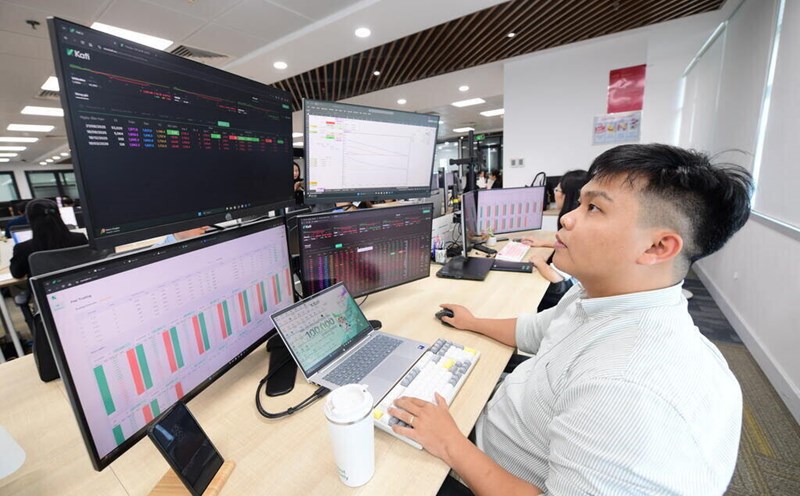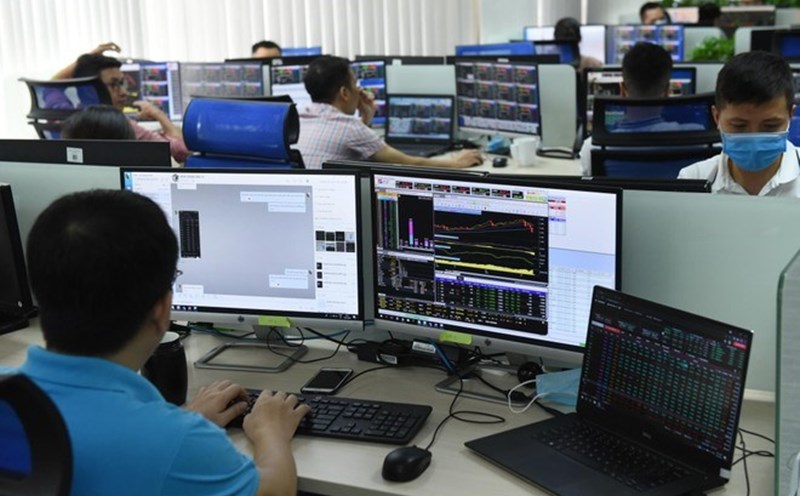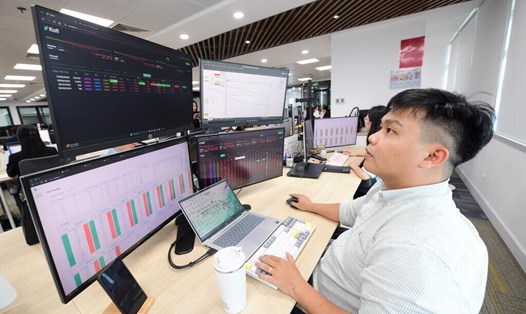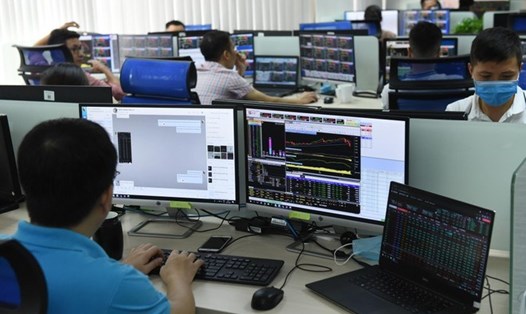After a volatile trading week, the VN-Index is gradually finding its balance. The overall liquidity of the market remains low, only increasing dramatically in deep declines, reflecting the caution of cash flow.
Meanwhile, foreign investors continue to net sell strongly with a total net withdrawal value of nearly 5 billion USD since the beginning of the year (after net selling 4 billion USD in 2024). The ownership ratio of foreign investors is currently only 15.3% - a record low in history.
Looking back at the increase of the VN-Index since the beginning of the year, it has been highly concentrated, mainly led by Vingroup stocks (VIC, VHM, VRE), contributing up to 77% of the index's increase, equivalent to about 322 points. If the impact of this group is excluded, the VN-Index will actually be around 1,365 points - reflecting the market width that is clearly weakening compared to the increase cycle before 2021, when the increase spread widely.
With the current market adjustment, this could be an important accumulation period when cash flow tends to shift to stocks that have not increased in price, in order to seek new opportunities with more attractive valuations. This rotation not only helps raise the general valuation level of the market, but also contributes to creating the necessary balance before entering a new growth stage.
What investors are currently interested in is that the stock market is in a very sensitive period when most investors have outstanding margin debt (margin). As of the end of the third quarter of 2025, margin outstanding loans in the whole market reached about VND 370,000 billion, corresponding to the ratio of margin outstanding loans to equity of about 1.25 - the level equivalent to the peak of the 2021 growth cycle.
Compared to international markets, the level of leverage use in Vietnam is quite high. This has caused the fluctuation range of the Vietnamese market to increase sharply, especially when more than 90% of participating investors are individuals and most of them use loans from securities companies.
Regarding the market scenario this week, analysts from DSC Securities Company (DTCK) said that the market is expected to gradually stabilize and narrow the range of fluctuations. Although there may be fluctuations in the first sessions of the week, it is likely that the VN-Index will have a recovery at the end of the week, aiming to re-evaluate the peak range of 1,750 - 1,760 points.
Investors should be interested in real estate stocks, securities and banks - groups that have decreased sharply in the past time and have strong recovery potential with the market.
According to DSC Securities, GDP in the third quarter of 2025 increased by 8.23% over the same period, reaching the highest level since 2011 (except for the recovery period after COVID-19). In the first 9 months of the year, GDP increased by 7.85% over the same period, reflecting the strong recovery momentum of the economy despite many unfavorable factors. With the current growth rate, Vietnam is getting closer to the growth target of 8% or more for the whole year.
The growth target for 2025 is feasible, thanks to supporting factors including: FDI capital flows maintaining a positive trend thanks to stable tariff prospects, accelerated public investment disbursement in the final period of the year and low and stable interest rates continuing to create momentum to support economic growth.
The market strategist research expert of HSC Securities Company also gave his assessment, the VN-Index is currently fluctuating within a narrow range around the 1,600-1,700 point range, showing a state of accumulation after a strong correction. The index is in the process of recovering but is still under significant selling pressure at the resistance zone of 1,700-1,720 points.
"The decrease in inflows compared to the 20-session average shows that cash flow is still cautious as the VN-Index approaches the short-term resistance zone. If the VN-Index can hold firm above MA50, the recovery will be consolidated and can be directed back to the 1,720 point mark in the short term. On the contrary, if the index falls below MA50, the risk of expanding the correction will increase significantly," said an expert from HSC Securities.












